The Library Is Open (Research)
workshop descriptions
The Library Is Open invites you to an afternoon of workshops that make the operations within libraries visible. Join us in exploring the actions and roles of legal and extra-legal libraries (municipal, pirate, academic, +++), their custodians, and the public that form a community around collections of texts.
blurry boundaries
Select, annotate, analyze, scan, correct, digitise, print, read, transfer, erase, encode, curate, hack, interface, work, copy...
What libraries become possible when you transform physical books into digital files, and vice versa? When a digital copy of a book is made for a digital library, specific steps are followed. Each of these steps requires a decision – to use tools and to spend time. The work involved in digitising a book is invisible and the digital version often loses its connection to the physical book and the library it came from.
We aimed to reflect upon different topics such as: The friction between the physical and digital book, what is lost and what is gained when you pass from one format to another. The physicality and contingency of these passages, the labour involved to produce those copies and its hidden position. The mindset of the librarian who has to choose how to produce the digital library, which format to chose and what kind of information to reveal. The possibility of a digital library which provides the history of the book and the people involved in its life. Annotations which reveal information and challenge the common, static idea of the book.
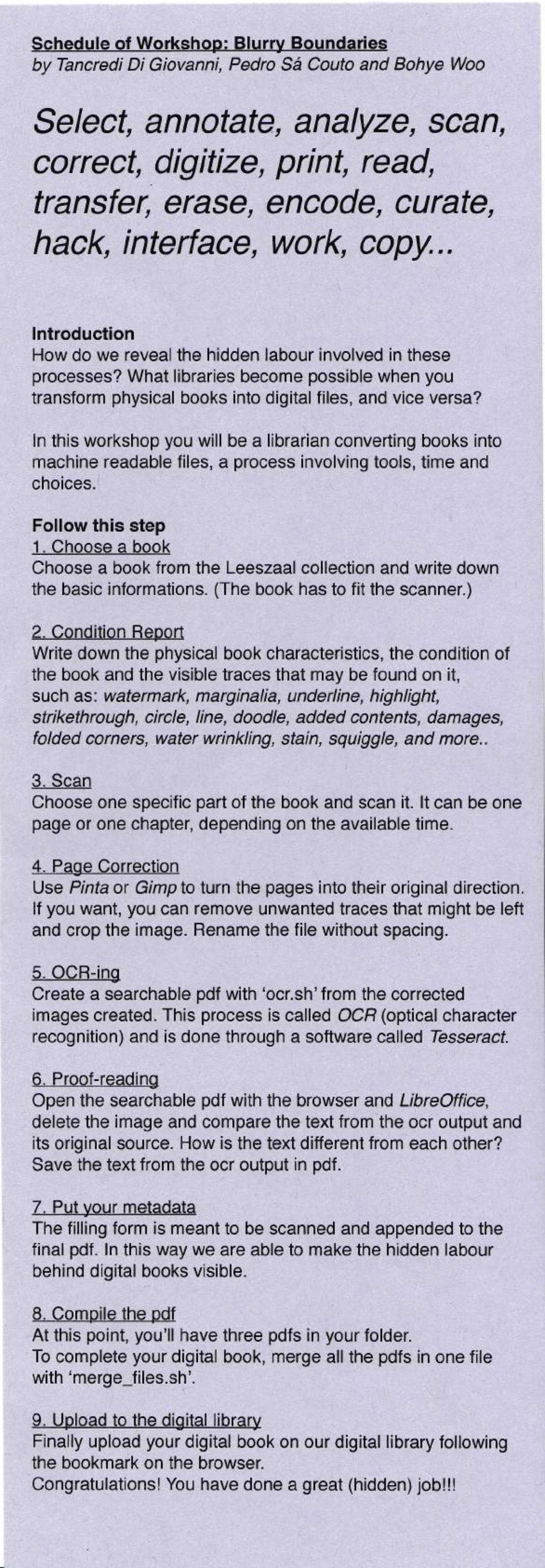
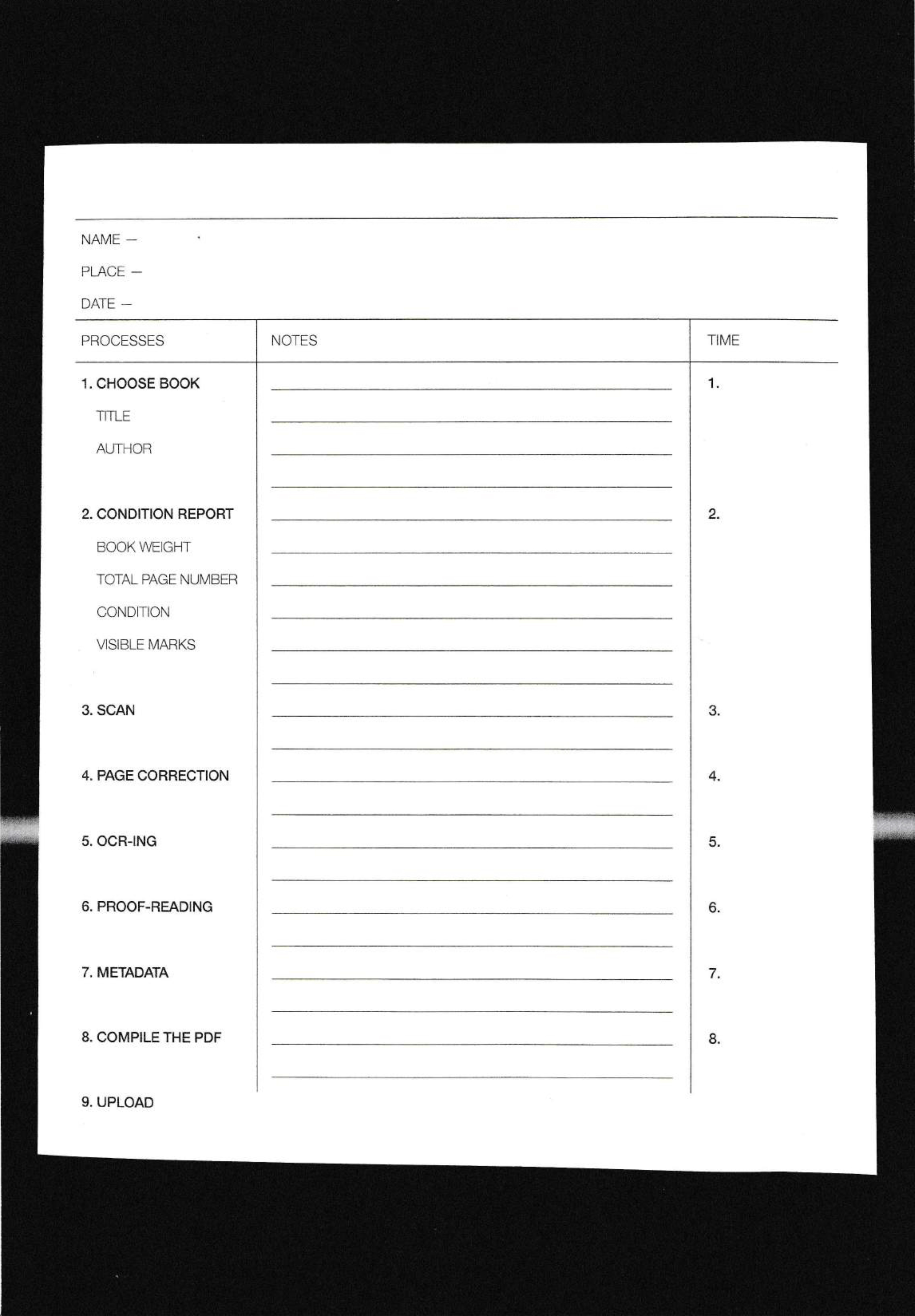
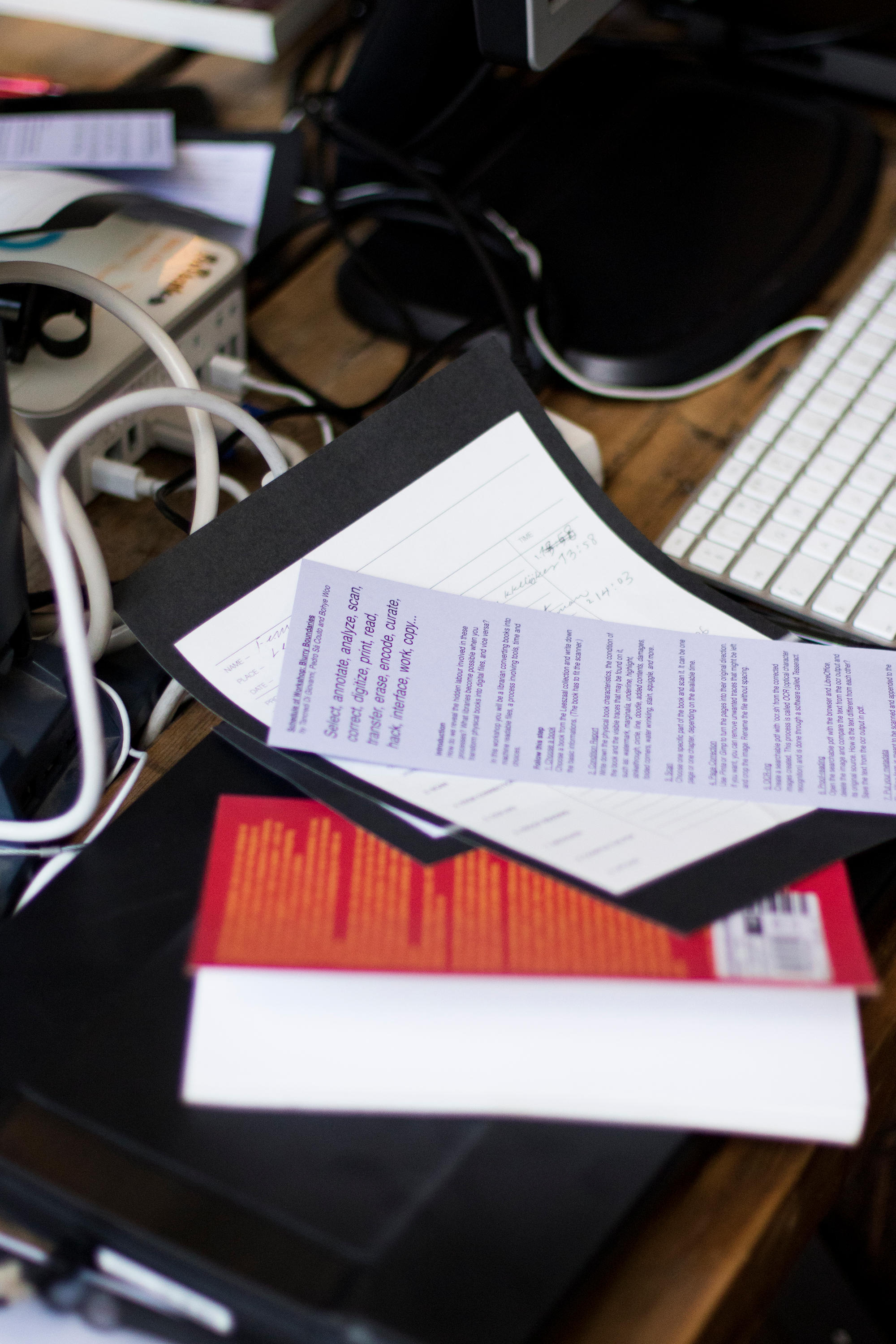
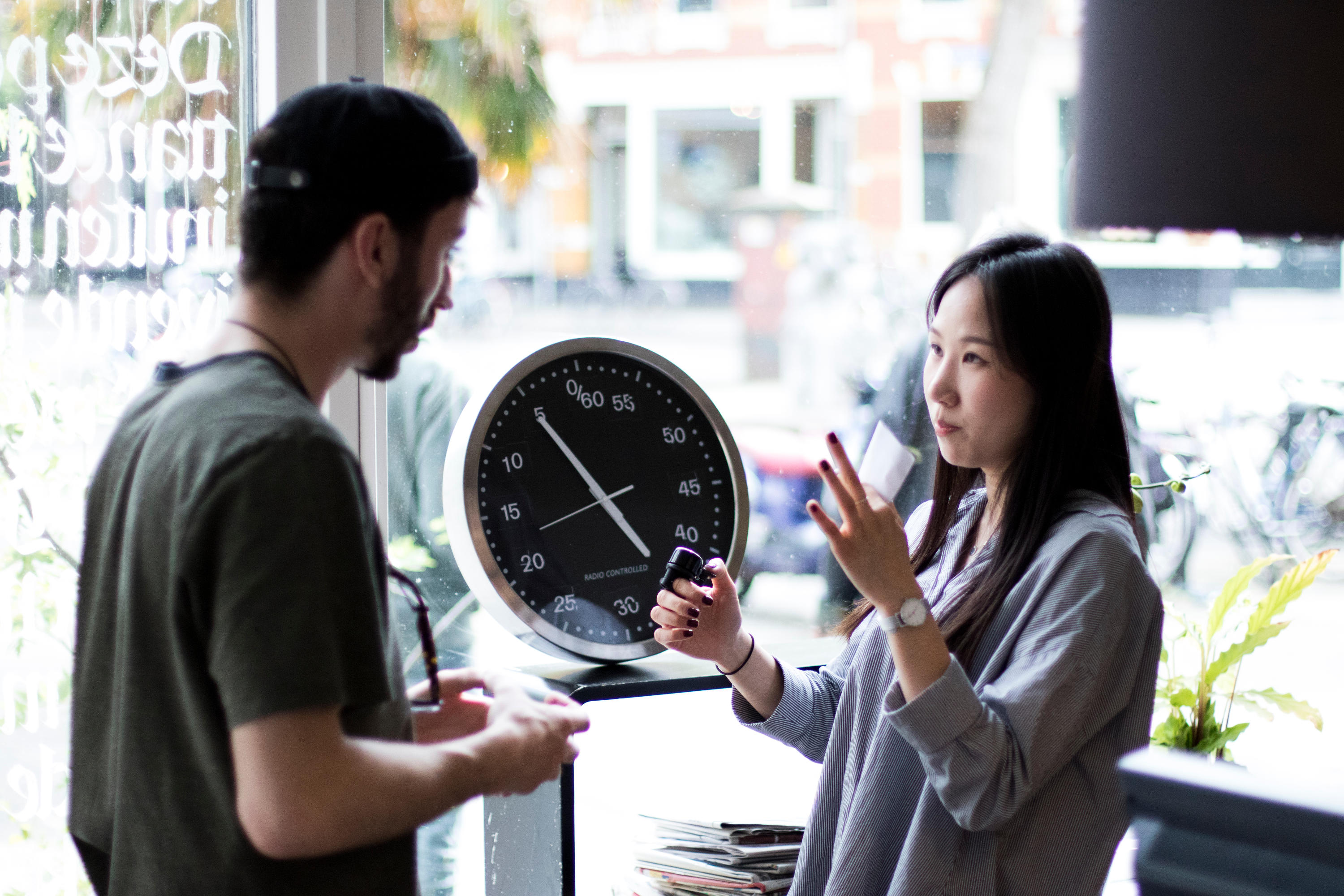
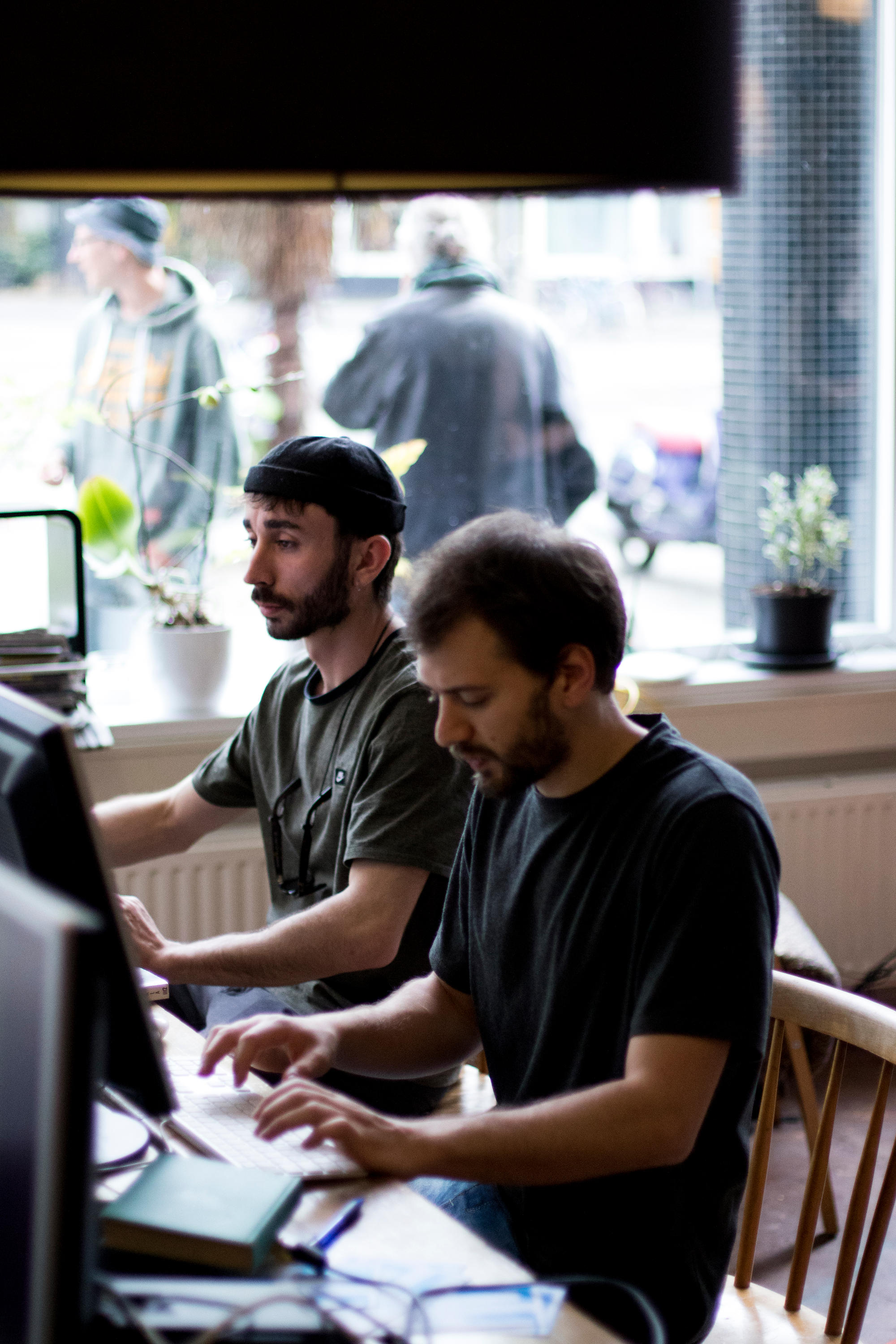
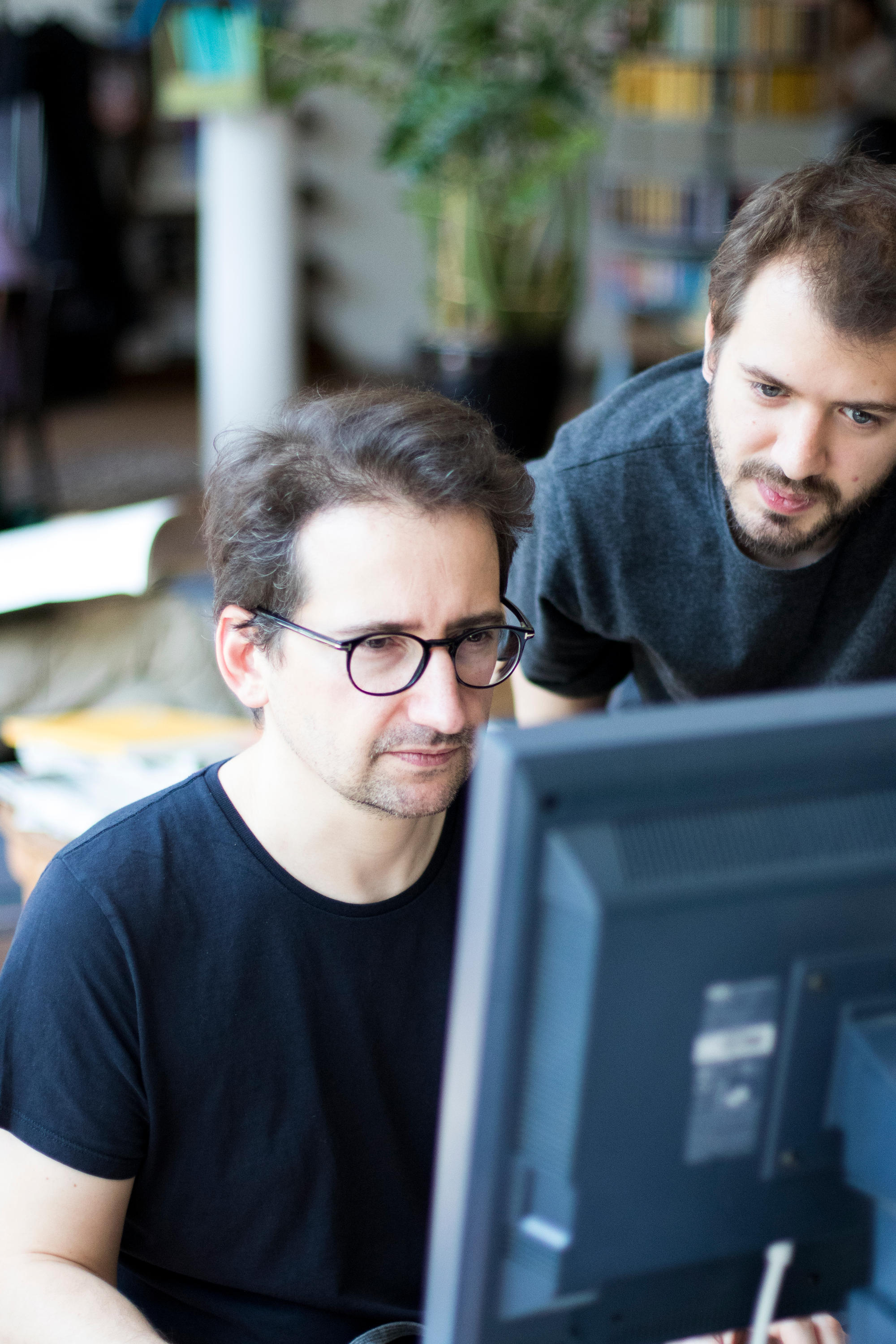
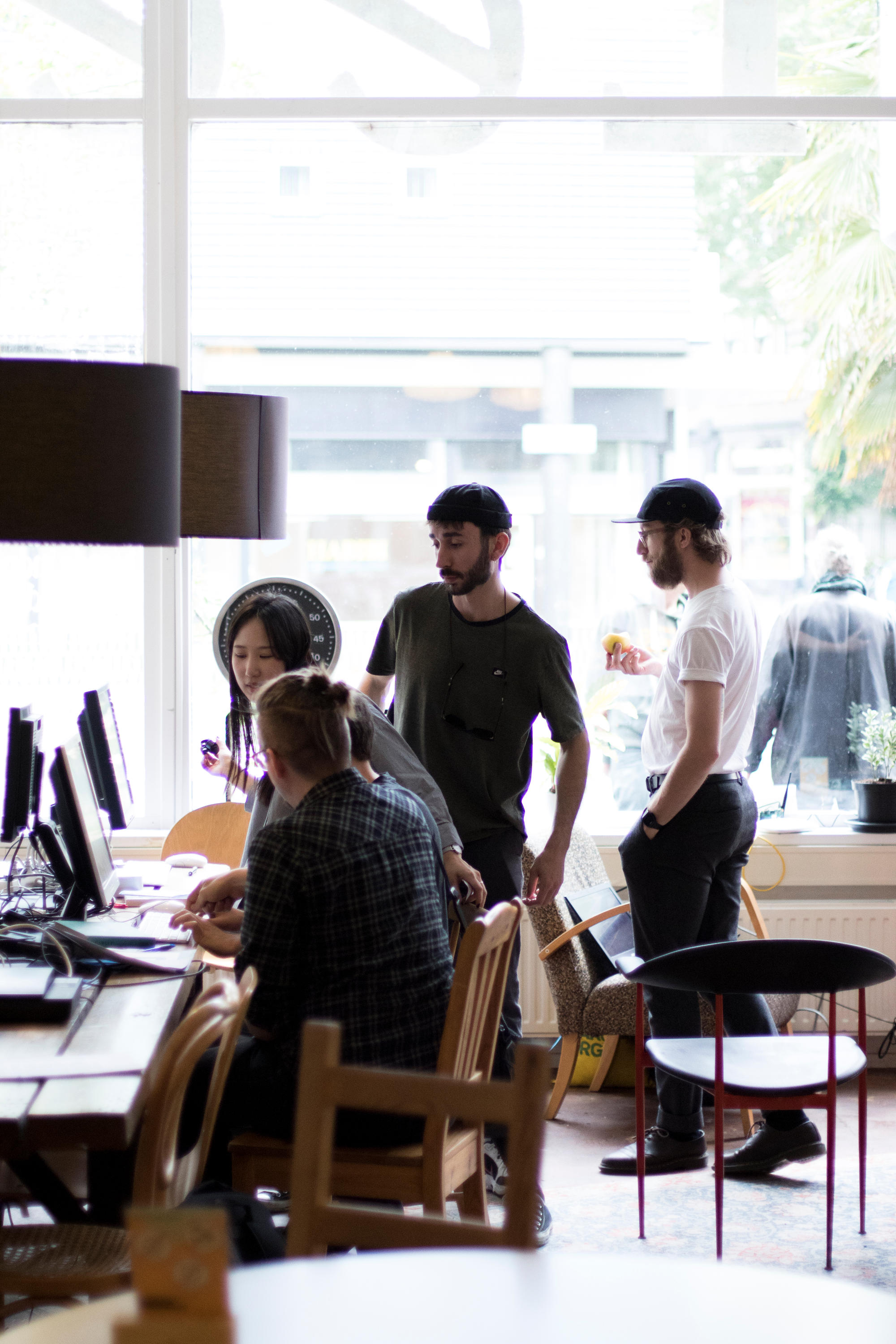
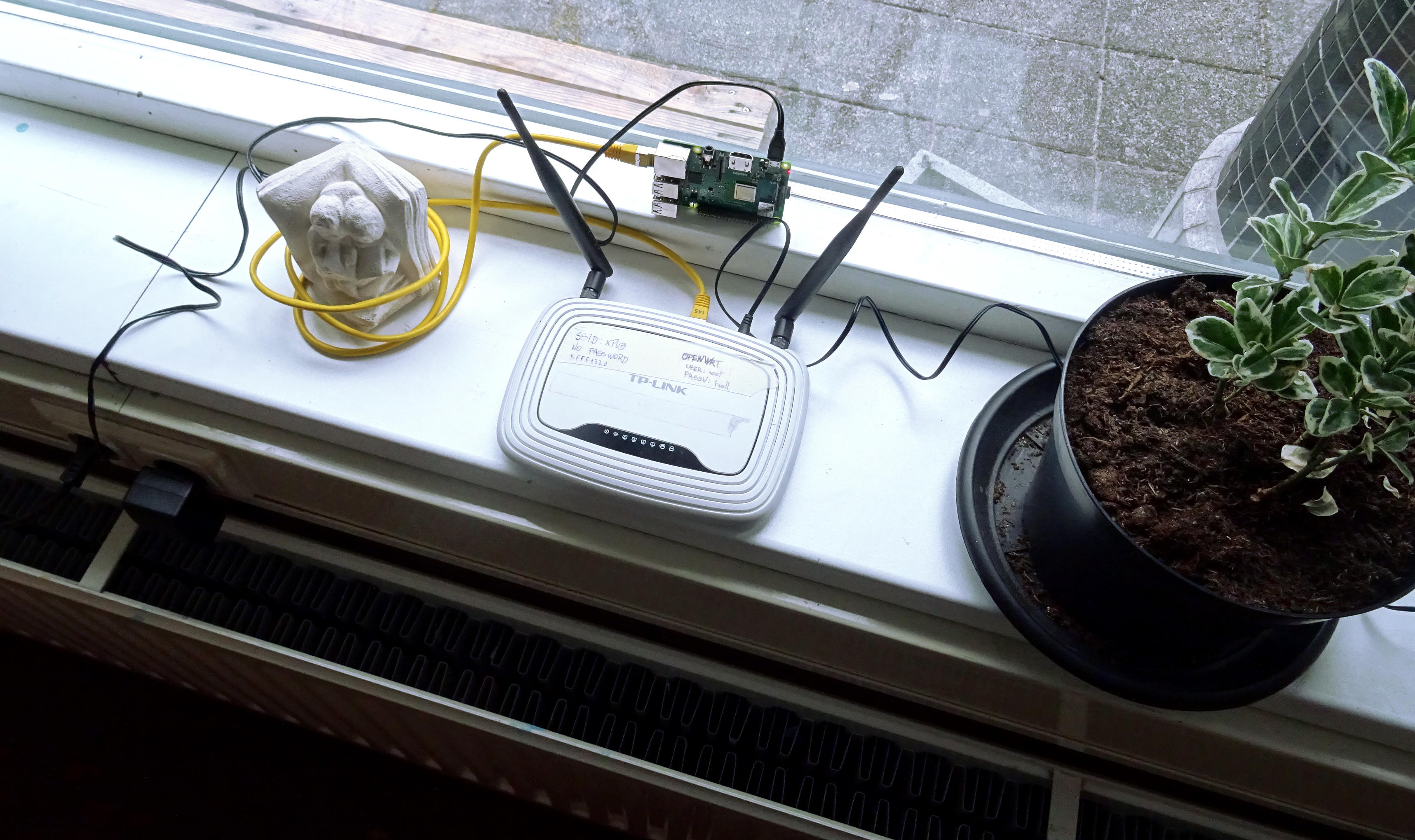
marginal conversations
Marginal Conversations is a workshop which explores collective reading, annotating and performing texts. We read, and write notes in the margins; usually in private, isolated from other readers. We come across texts with others’ notes on them; the author unknown, their thoughts obscure. What happens when we share our notes, vocalise and perform them? In this workshop, participants read, annotate and discuss the open letter “In Solidarity with Library Genesis and Sci-Hub”, which asks for pirate library practices to come out from the shadows. This letter was selected for many reasons; it was an introduction for us to the thematic “Interfacing the Law”, it’s available in many languages, and presents an argument that generates interesting conversations. We compare annotations to detect common areas of interest and to also explore different methods, where readers can develop codes and techniques to extend the content of the source and express their personal understanding of it. The goal is not only to find areas of agreement, but also to discover tensions, disagreements etc. with the letter, which can also develop into fruitful conversations.We leave traces of our reading, enriched by our doubts, sympathies, tensions and diverse understandings. We personalise the text, opening it up for collective conversations. Our voices occupy the space and leave traces on the text and in the library.
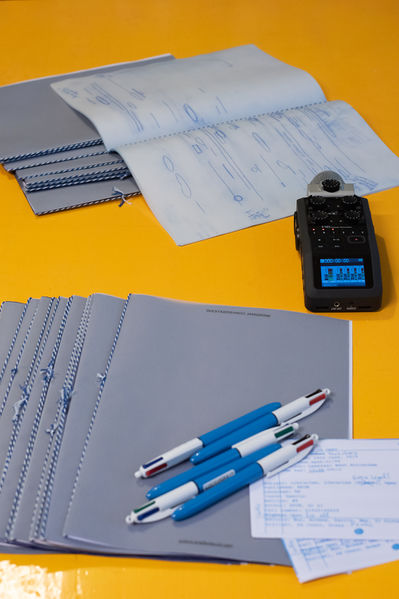
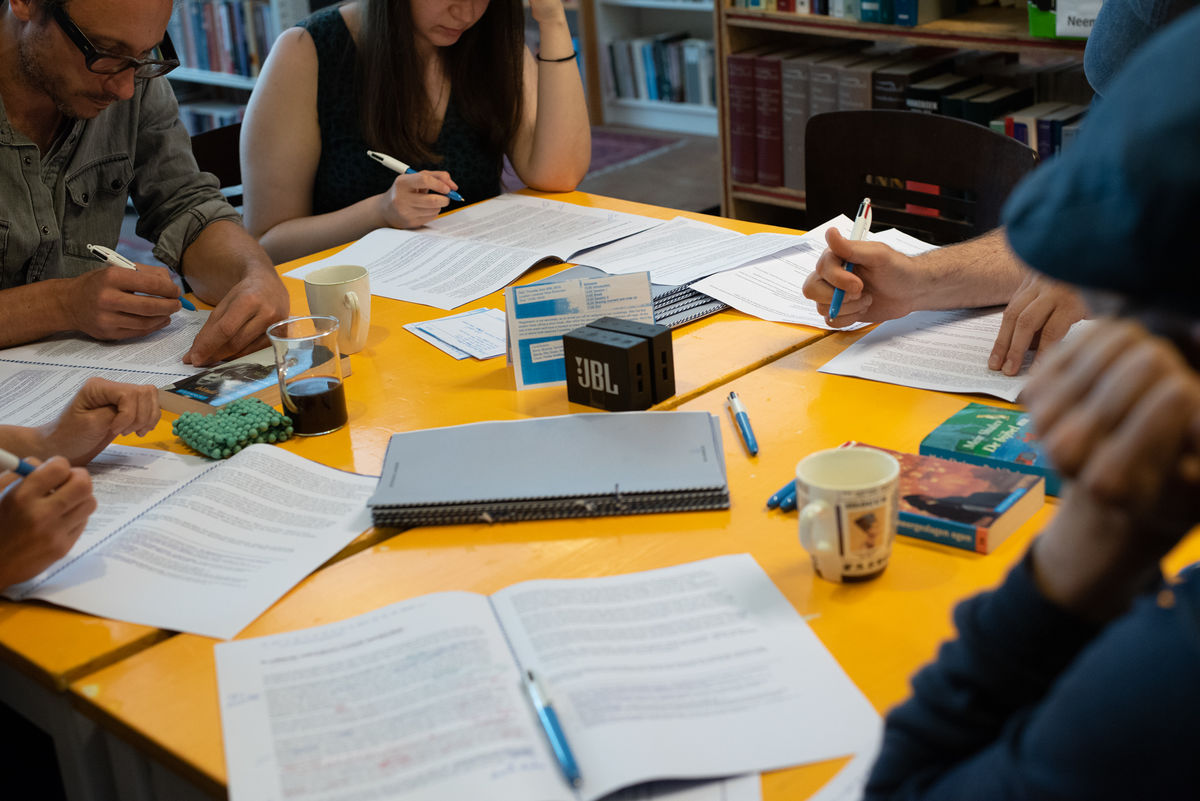
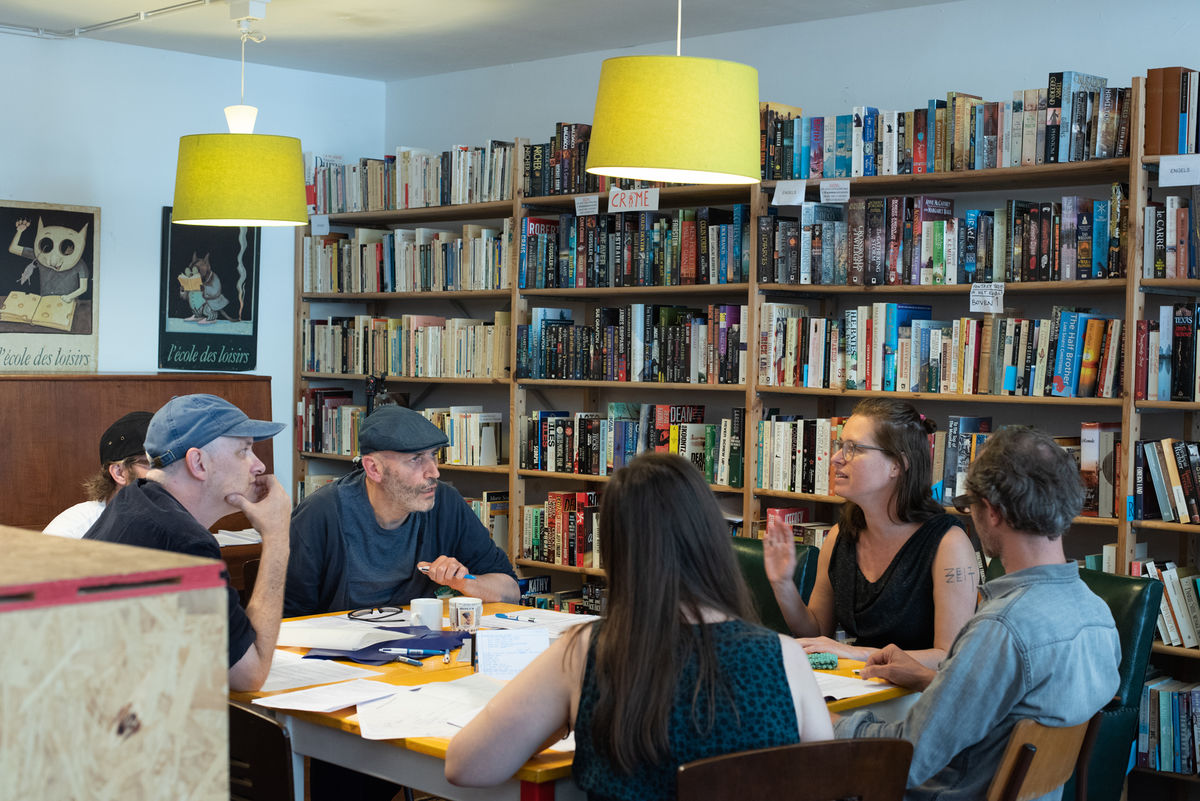
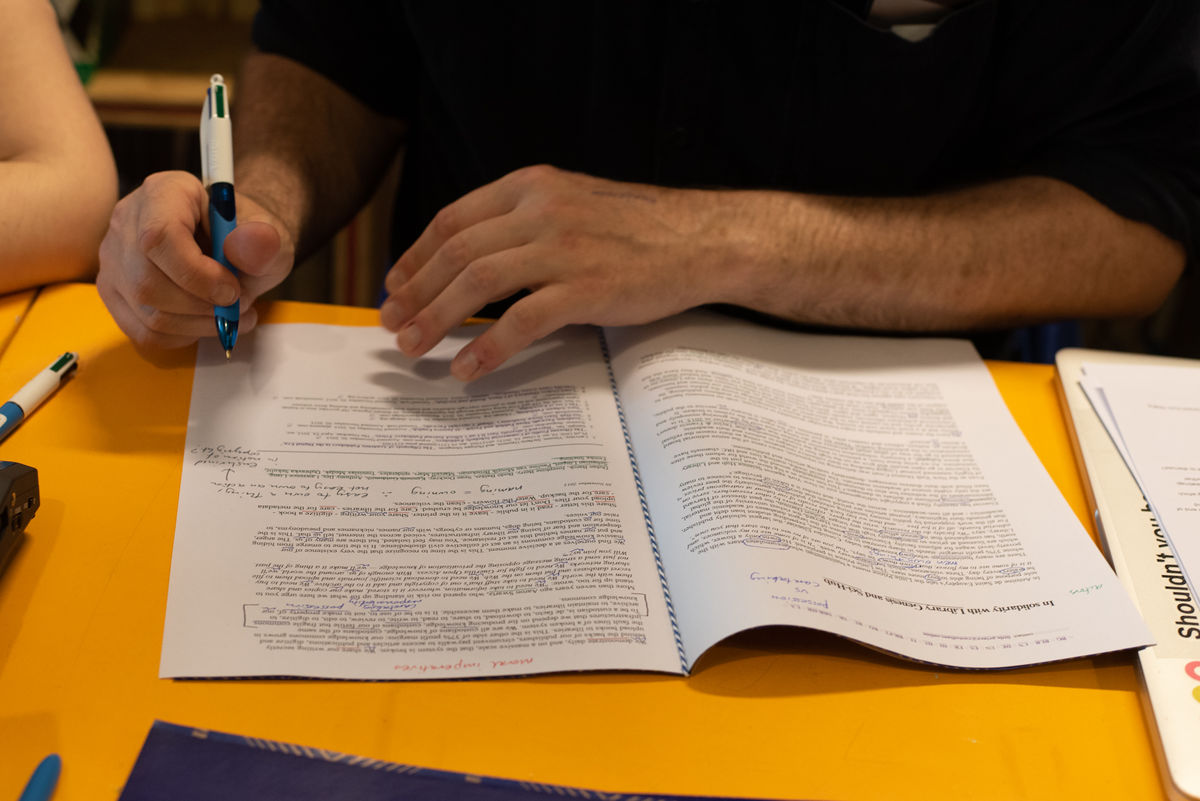
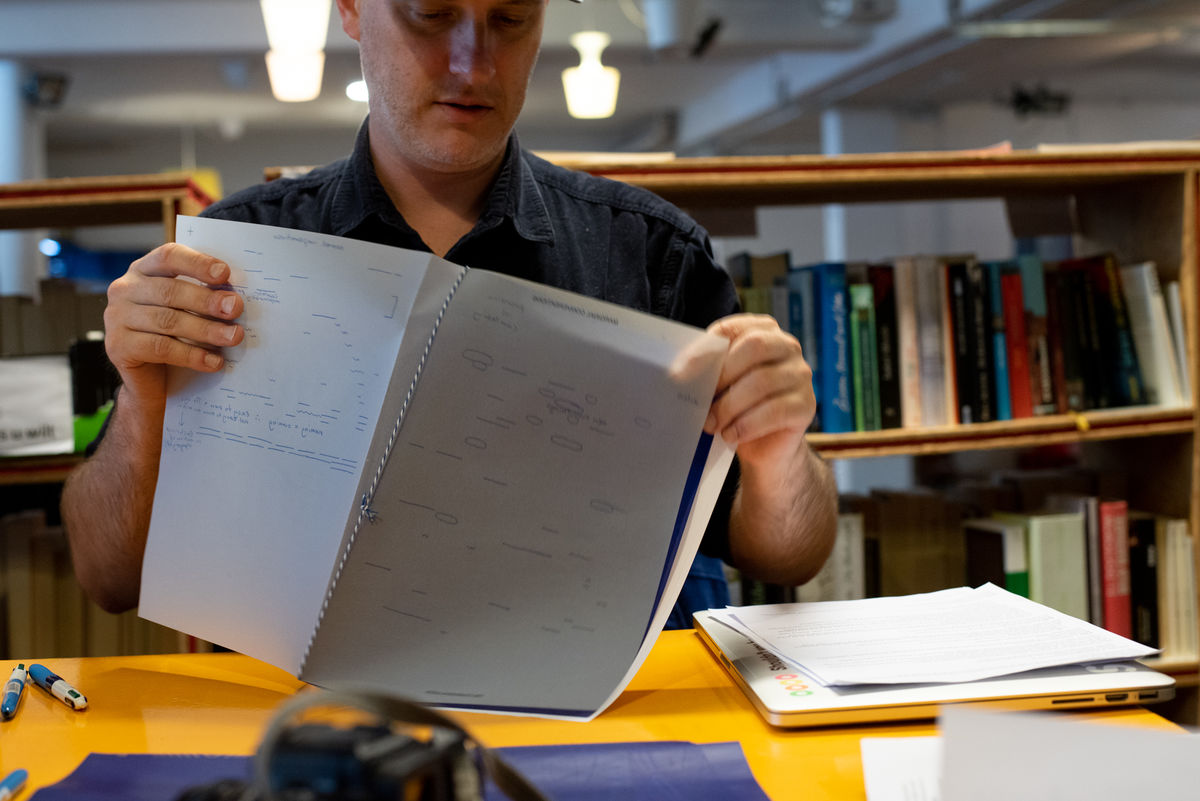
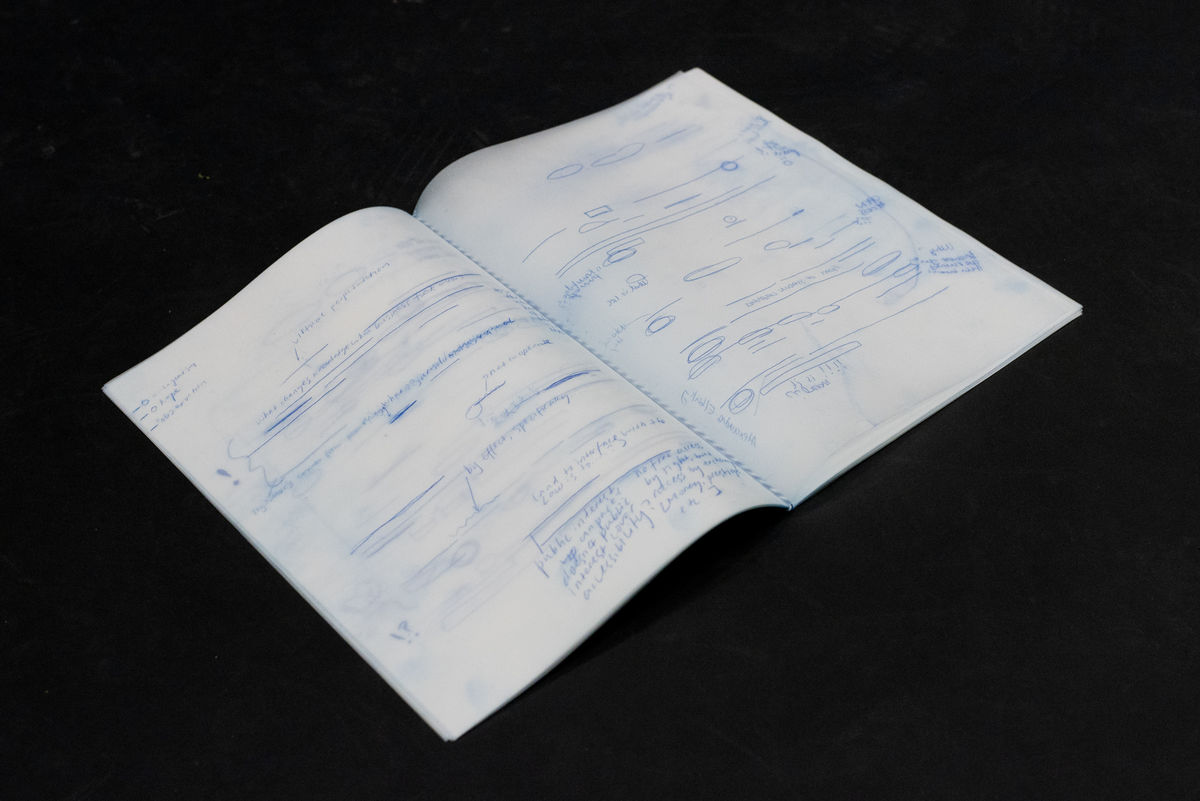
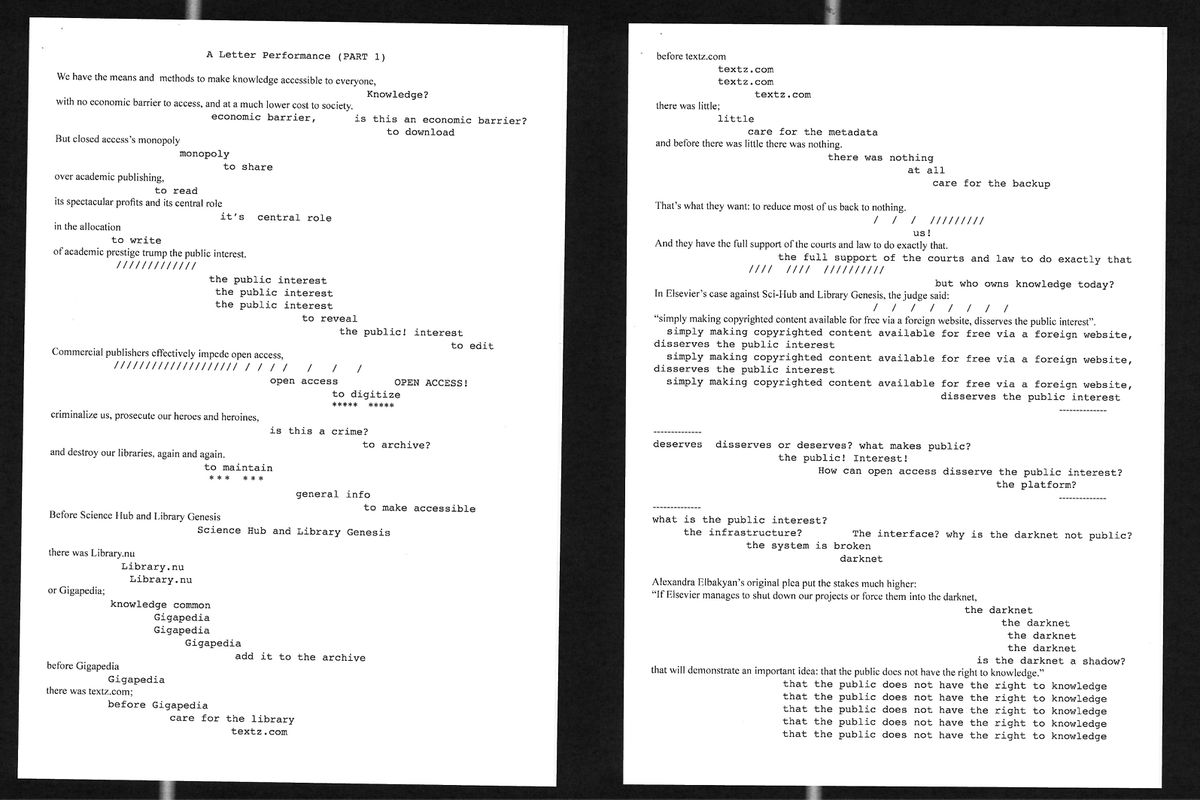
knowledge in action
We looked for different ways that knowledge can be maintained and preserved. We visited different libraries of different scales. We investigated their operations and their levels of legality. We interviewed people who adopted the role of librarians in their unique ways. From these experiences, we started outlining our workshop. The workshop Knowledge in Action invites participants to act the roles and perform the activities crucial to the sustenance of libraries. They interpret and re-imagine the actors that take part in knowledge production and distribution, playing the parts of the librarian, the researcher, the pirate, the publisher, the reader, the writer, the student, the copyist, the printer. The activities embed the participants in different scenarios to shift their accustomed perspective and to start common dialogues.
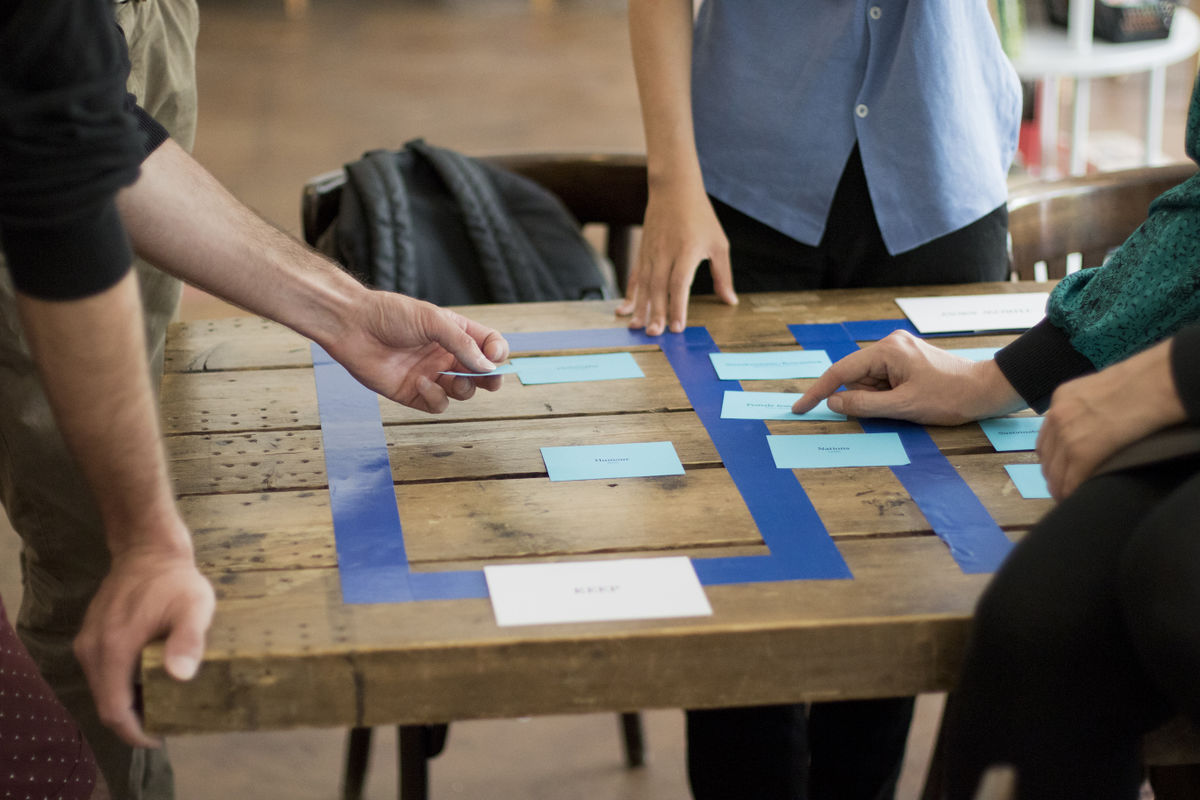
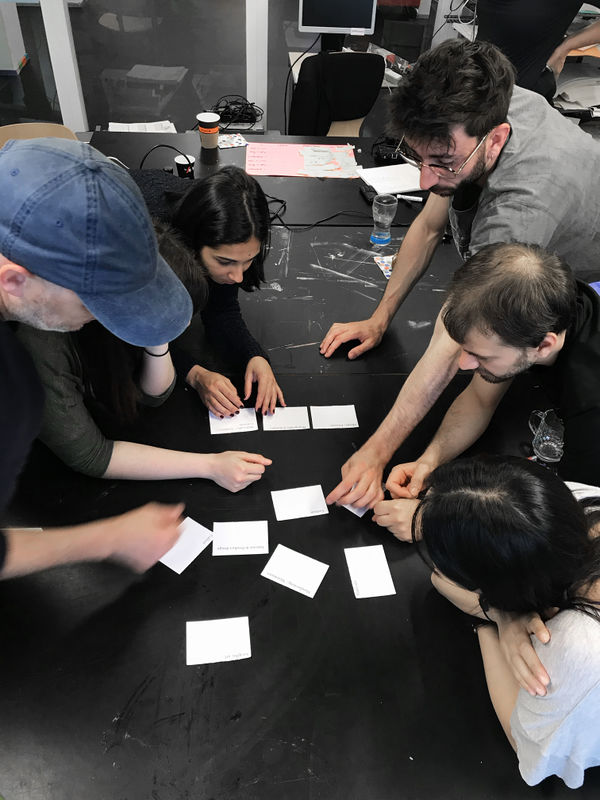
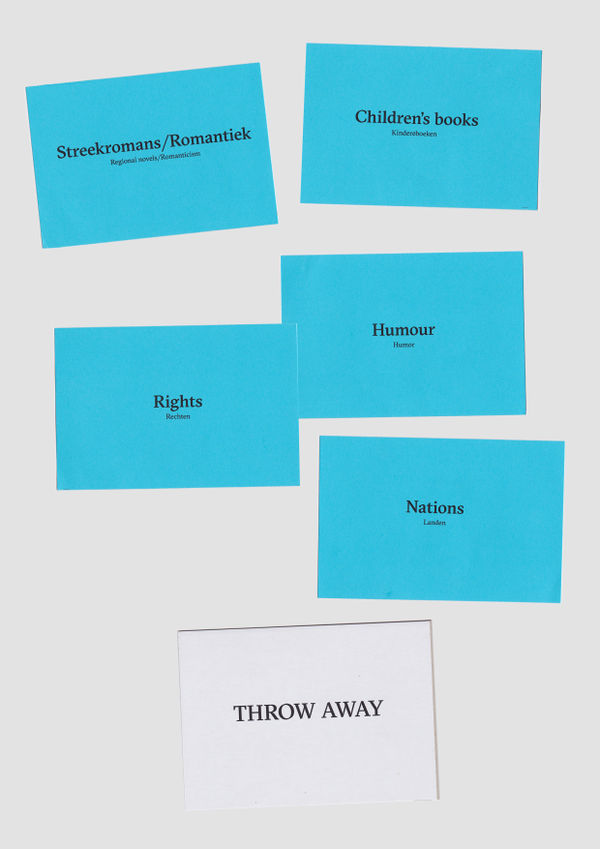
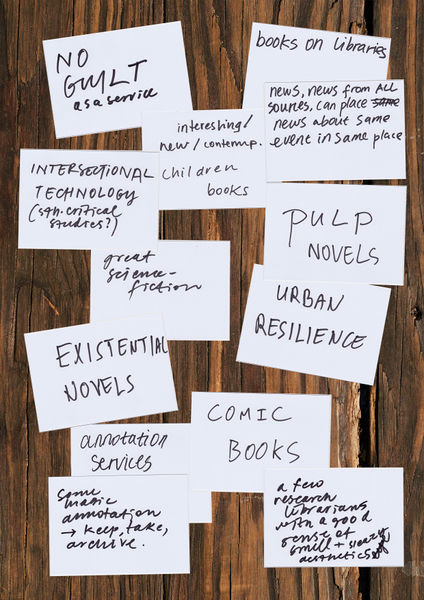
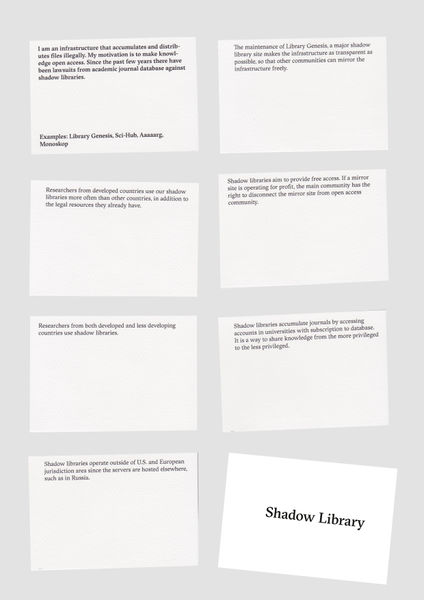
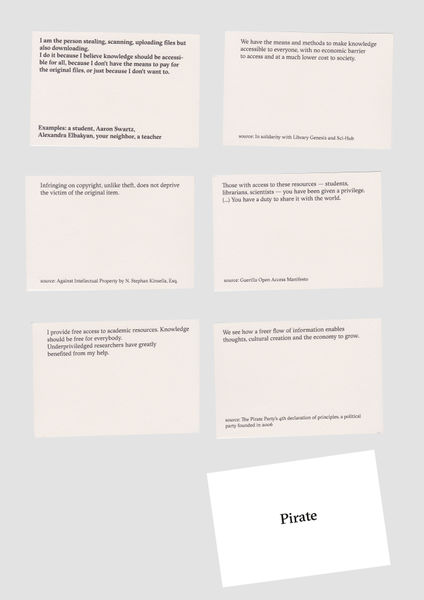
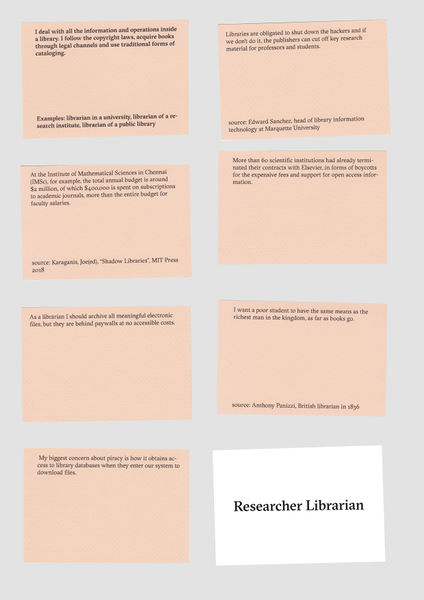
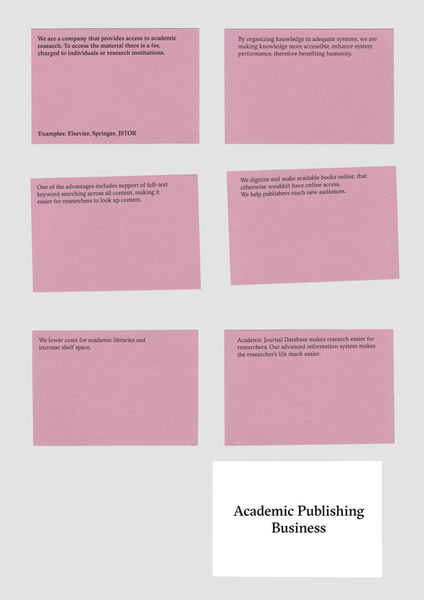 :
:
